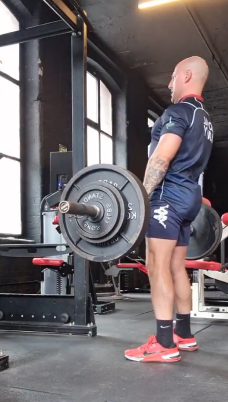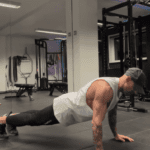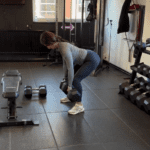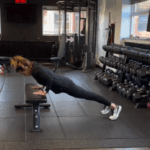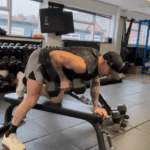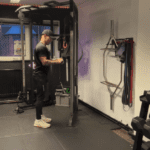Fitness training for rugby should focus on improving various aspects of fitness, including strength, speed, endurance, and injury prevention. Here is a breakdown of how each aspect can be addressed in a Personal Trainer fitness training program for rugby:
- Strength: Rugby players require a strong foundation to withstand the physical demands of the game. Strength training should focus on compound multi-joint movements such as bench press, squats, deadlifts, and other exercises such as chins, rows and presses. The ideal strength training program would include 2-3 sessions per week, with 3-5 sets of 2-6 reps at 80-95% 1RM (one rep max) per main lift, and then x2 sets of accessory exercises. Rest periods should be 2-4 minutes in length and the strength cycle should last 4-6 weeks, depending on adaptation to the training.
- Speed: Speed is crucial for rugby players, especially wingers, who need to be fast and elusive. A speed program should include exercises that develop power, strength, leg speed and technique. Drills like sprinting, side steps and pick-ups can help improve acceleration, deceleration and overall speed. Use drills like T sprints, which improve forward, sideways and backwards sprinting speed. Also work on your sprint technique by incorporating drills that develop and reinforce proper technique.
- Endurance: An essential for rugby players so that energy levels are maintained throughout the game. Aerobic endurance can be improved through steady-state running, interval training and fartlek training, whilst anaerobic endurance can be developed through short bursts of high-intensity activity such as sprint training and plyometric exercises.
- Agility: Crucial for rugby players to change direction quickly and evade opponents. Drills that focus on lateral movement, such as T sprints, agility ladder, and exercises that replicate rugby movements into your training can help improve agility. Focus on purposeful practice of drills throughout your rugby calendar to develop agility.
- Injury prevention: Strength and conditioning exercises can help reduce the risk of injury. Incorporating exercises like box jumps, plyometric lunges, and core circuits can help improve overall fitness and reduce the likelihood of injuries. Ensure proper technique and form during strength training to minimize the risk of injury.
Remember, it is essential to listen to your body, allow for adequate recovery and adjust the training program as needed. A Personal Trainer can help you design a customised fitness training program that addresses your specific needs and goals in rugby. Personal Trainers with rugby experience and knowledge (like Christian) can be invaluable in helping rugby players get fitter, stronger and more resilient by recommendations of drills and movements that mimic the demands of the sport, such as scrummaging, tackling and sprinting to create a tailor-made program. This sport-specific training translates better to on-field performance. One-on-one coaching can help players stay accountable and reach their full potential by assessing their strengths, weaknesses, and physical limitations to create a customised program – a personalised approach is more effective than generic fitness plans.
A Personal Trainer is an investment in your health and well-being that can lead to long-term positive effects on your fitness, confidence, and overall health. PT Hale prides itself on being a social and safe space where you can workout individually, or with like-minded people to get the results that you want and deserve – LET’S GO!

